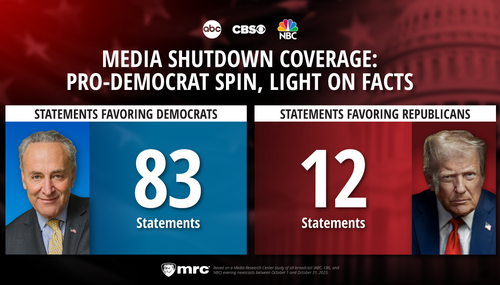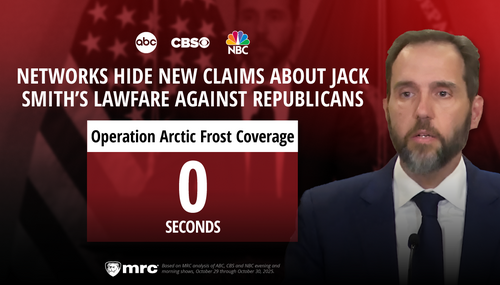The Washington Post front page on Friday morning highlighted a "Historically Low Tally" in the Senate to confirm Attorney General Michael Mukasey. Reporters Dan Eggen and Paul Kane, who pounded away at the U.S. Attorney scandal that undid former Attorney General Alberto Gonzales, highlighted his narrow (hollow?) victory in gloomy terms:
The final tally gave Mukasey the lowest number of yes votes for any attorney general since 1952, just weeks after lawmakers of both parties had predicted his easy confirmation. Mukasey takes the place of Alberto R. Gonzales, who left under a cloud of scandal in September.
He avoided defeat only because a half-dozen Democrats voted in favor of the appointment along with Republicans and Democrat-turned-independentJoseph I. Lieberman (Conn.).
Mukasey, 66, had outraged many lawmakers and human rights groups by repeatedly refusing to classify waterboarding, a simulated-drowning technique, as torture. His few Democratic supporters said last night that, although they are troubled by his equivocal views on waterboarding, they believe Mukasey represents the best possibility for change at the troubled Justice Department.
...The fractured tally signals that Mukasey will face a deeply skeptical Democratic Congress as he takes over at Justice, which has been demoralized and emptied of senior leadership in the wake of scandals.
The story concluded: "Mukasey garnered the lowest number of yes votes among confirmed attorneys general since James P. McGranery, who was approved by a vote of 52 to 18 in 1952 during the Truman administration. The only recent competitor is John D. Ashcroft, who attracted 58 yes votes from the GOP-controlled Senate in 2001."
Eggen and Kane didn’t seem to consider whether the vote reflected badly on the Democrats instead of Mukasey or the President. This was a nomination encouraged by liberal Sen. Charles Schumer (who voted yes), and the nominee was acknowledged to be perhaps "the best" Democrats could expect – and they still voted no en masse. He was somehow too pro-Bush to serve under Bush.
Doesn't it suggest that Democrats go hunting for a reason to vote No? The margin wasn’t really that notable, or historically "fractured." The same pattern occurred among Democrats with other GOP Attorney General nominees: 42 votes against John Ashcroft, 36 against Alberto Gonzales, and now 40 against Mukasey (not counting some absent candidates like Hillary and Obama who would have voted no).
They didn’t notice how many Republicans voted against Attorney General Janet Reno in 1993. That roll call vote was 98 to zero.
The same pattern held true for Clinton’s Supreme Court nominees. In 1993, President Clinton nominated Ruth Bader Ginsburg, who was calmly approved by a vote of 96 to 3. In 1994, Clinton nominated Stephen Breyer, who was confirmed by a vote of 87 to 9.
By contrast, Democrats simply voted no to anyone who was unacceptably conservative, with Robert Bork and Clarence Thomas, with 58 senators against the one, and 48 votes against the other. (The comparatively less controversial John Roberts and Sam Alito nominations drew 22 and 25 Democratic nays.)
If the Democrats elect President Hillary, would the Washington Post like the Senate Republicans to vote against her Attorney General or Supreme Court nominees by large margins just because they seem unacceptably pro-Clinton? This angle, demonstrating Democrats are more partisan and less deferential to the White House than the Republicans, was utterly skipped by the Post.




